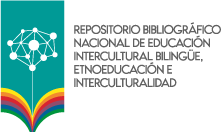Por favor, use este identificador para citar o enlazar este ítem:
http://repositoriointerculturalidad.ec/jspui/handle/123456789/4189Registro completo de metadatos
| Campo DC | Valor | Lengua/Idioma |
|---|---|---|
| dc.contributor.advisor | Reyes Solís, Darwin Bellini | - |
| dc.contributor.author | Pujota Pujota, Jaime Eduardo | - |
| dc.contributor.author | Hidalgo Morales, Silvia Ximena | - |
| dc.date.accessioned | 2014-10-29T21:01:59Z | - |
| dc.date.accessioned | 2020-04-29T17:05:10Z | - |
| dc.date.accessioned | 2020-05-04T03:26:37Z | - |
| dc.date.available | 2014-10-29T21:01:59Z | - |
| dc.date.available | 2020-04-29T17:05:10Z | - |
| dc.date.available | 2020-05-04T03:26:37Z | - |
| dc.date.issued | 2014-04 | - |
| dc.identifier.other | http://dspace.ups.edu.ec/handle/123456789/7065 | - |
| dc.identifier.uri | http://8.242.217.84:8080/xmlui/handle/123456789/4189 | - |
| dc.description | Education has historically responded to the policies of successive governments, low profile power groups and naturally focused on the urban sector preferably the marginalized rural sector all kinds of infrastructure and limited exercise their right to education and quality of life; aspects in this work are taken care research, carried out in order to identify the most important aspects in intercultural bilingual education and the implementation of cooperative learning methodology. In this respect our work we present a major synthesis , where a full description on intercultural bilingual education , profiles of actors and the management model which validate the implementation of cooperative learning as a methodology to achieve educational quality is made. At the same time we present the theoretical basis of cooperative learning, in which issues such characteristics, the task of the educator and cooperative learning, and several techniques of this methodology are discussed. | en_US |
| dc.description.abstract | La educación históricamente ha respondido a las políticas de los gobiernos de turno y bajo el perfil de los grupos de poder y naturalmente centrados en el sector urbano preferentemente, el sector rural marginado de todo tipo de infraestructura y limitados de ejercer su derecho a la educación y calidad de vida; aspectos que en el presente trabajo de investigación se toman atención, que se lleva a cabo con la finalidad de identificar los aspectos de mayor relevancia en la educación intercultural bilingüe y la aplicación de metodología de aprendizaje cooperativo. Al respecto de nuestro trabajo damos a conocer una síntesis principal, donde se realiza una amplia descripción sobre la educación intercultural bilingüe, perfiles de los actores y el modelo de gestión que dan validez a la aplicación del aprendizaje cooperativo como metodología para alcanzar la calidad educativa. A su vez presentamos las bases teóricas del aprendizaje cooperativo, en el que se tratan temas como características, la tarea del educador y el aprendizaje cooperativo y varias técnicas de esta metodología. | en_US |
| dc.format | application/pdf | - |
| dc.language.iso | spa | en_US |
| dc.publisher | Universidad Politécnica Salesiana – UPS | es_ES |
| dc.rights | openAccess | - |
| dc.subject | EDUCACIÓN INTERCULTURAL BILINGÜE | es_EC |
| dc.subject | EDUCACIÓN BÁSICA | es_EC |
| dc.subject | ENSEÑANZA - APRENDIZAJE | es_EC |
| dc.subject | APRENDIZAJE COOPERATIVO | es_EC |
| dc.subject | CENTROS EDUCATIVOS | - |
| dc.subject | INSTITUCIONALIZACIÓN EIB | - |
| dc.title | El aprendizaje cooperativo en las escuelas interculturales bilingües. Estudio de caso de la Unidad Educativa Intercultural Bilingüe “Alejandro Chávez” de la comunidad de Gualsaquí, cantón Otavalo, provincia de Imbabura. | en_US |
| dc.type | bachelorThesis | en_US |
| dc.ups.carrera | Educación Intercultural Bilingüe | - |
| dc.ups.sede | Sede Quito | - |
| Aparece en las colecciones: | 1.45 Instituciones educativas | |
Ficheros en este ítem:
| Fichero | Tamaño | Formato | |
|---|---|---|---|
| UPS-QT05623.pdf | 1,36 MB | Adobe PDF | Visualizar/Abrir |
Los ítems de DSpace están protegidos por copyright, con todos los derechos reservados, a menos que se indique lo contrario.
